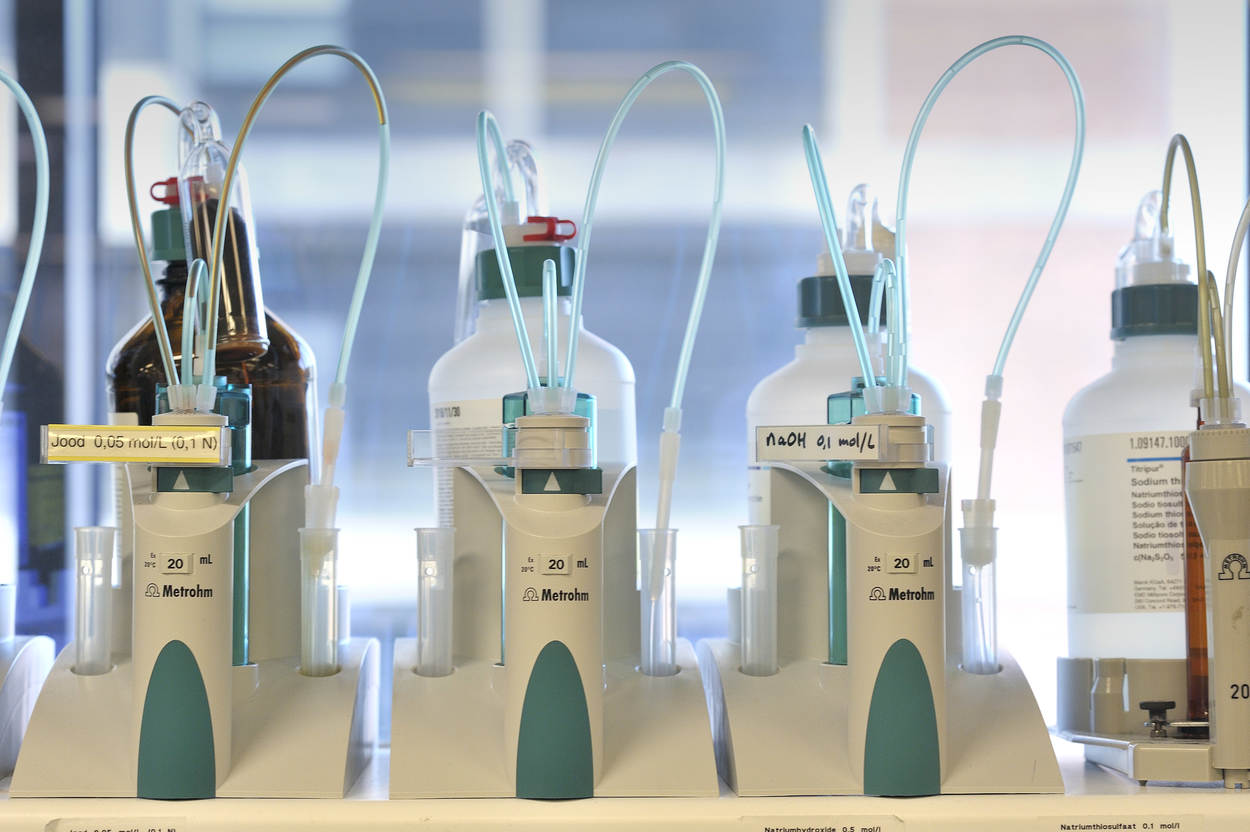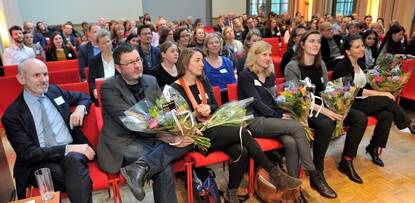Regulatory science provides the Medicines Evaluation Board (MEB) with up-to-date data, knowledge and expertise based on current scientific insights, for optimal evaluation and marketing authorisation of medicinal products and novel foods. This ensures an even better assessment of risks, efficacy and quality.
Research trajectories & programmes
On the MEB website you can find all the research trajectories and programmes the MEB supports.
The MEB’s Regulatory Science definition:
Regulatory Science is the science of developing and validating new standards and tools to evaluate andd assess the benefit/risk of medicinal products, facilitating sound and transparent regulatory decision making. Through analysis of regulatory frameworks itself and its effectiveness, however, Regulatory Science can also advance knowledge of these systems in general.

Thesis Highlight: Marian Mitroiu
I am a PhD student at the Clinical Trial Methodology Department, Julius Center for Health Sciences and Primary Care, Biostatistics and Research Support, University Medical Center Utrecht, University of Utrecht, under the supervision of Prof Dr Kit Roes, Dr Steven Teerenstra and Dr Katrien Oude Rengerink. My PhD research project is jointly conducted within the Methodology Working Group at MEB.
The upcoming revision of ICH E9 guideline ‘Statistical Principles for Clinical Trials’ aims to deal with the concept of estimands, literally: what has to be estimated. The estimand is described by four attributes: endpoint, population, population-level summary and strategy/ies to account for intercurrent events such as treatment discontinuation, treatment switch or intake of rescue medication.
E9(R1) aims to provide a framework to agree on estimands, and ensure that this leads to consistency in primary objectives of a trial, the target population, the trial design and in the end the summary statistics that provide the proper estimates of the estimand. It is expected this will have substantial impact throughout all therapeutic areas.
My research project focuses on methodological aspects of estimands and their impact on clinical trial design and regulatory decision making.

Thesis Highlight: Esther de Vries
Risk communication, the uptake and improvement of drug safety information for healthcare professionals.
Supervisor: Prof. Dr. Petra Denig (UMCG), Co supervisor: Dr. Peter Mol (UMCG, MEB). This project will focus on the uptake and improvement of drug safety information for healthcare professionals, in particular in the hospital setting.
We aim to identify whether and how current use of direct professional healthcare communication (DHPC) can be improved for the hospital setting. We also aim to develop and apply valid effect measures to study the impact of safety information, such as DHPCs. Furthermore, we will study the impact of safety issues communication by the authorities on media coverage, newspaper/social media.

Students highlights
For my bachelor Pharmaceutical Business Administration, I had the opportunity to conduct a six month research internship at the Medicine Evaluation Board (MEB). The main topic of the research was “patient participation within the National Scientific Advice of the MEB”.
Publication highlights
-
You can read more about the PRISM projects in the PRISM newsletter.
-
Finding synergies for 3Rs - Toxicokinetics and read-across: Report from an EPAA partners' Forum.
Laroche C, Aggarwal M, Bender H, Benndorf P, Birk B, Crozier J, Dal Negro G, De Gaetano F, Desaintes C, Gardner I, Hubesch B, Irizar A, John D, Kumar V, Lostia A, Manou I, Monshouwer M, Müller BP, Paini A, Reid K, Rowan T, Sachana M, Schutte K, Stirling C, Taalman R, van Aerts L, Weissenhorn R, Sauer UG.
-
EudraVigilance Medicines Safety Database: Publicly Accessible Data for Research and Public Health Protection. Postigo R, Brosch S, Slattery J, van Haren A, Dogné JM, Kurz X, Candore G, Domergue F, Arlett P.
-
de Vries ST, van der Sar MJM, Coleman AM, Escudero Y, Rodríguez Pascual A, Maciá Martínez MÁ, Cupelli A, Baldelli I, Šipić I, Andrić A, Michan L, Denig P, Mol PGM; SCOPE work package 6.
-
Sagwa EL, Ruswa N, Mavhunga F, Rennie T, Mengistu A, Mekonen TT, Leufkens HGM, Mantel-Teeuwisse AK.
-
New strategies for the development of lipid-lowering therapies to reduce cardiovascular risk.
Graham I, Shear C, De Graeff P, Boulton C, Catapano AL, Stough WG, Carlsson SC, De Backer G, Emmerich J, Greenfeder S, Kim AM, Lautsch D, Nguyen T, Nissen SE, Prasad K, Ray KK, Robinson JG, Sasiela WJ, Bruins Slot K, Stroes E, Thuren T, Van der Schueren B, Velkovski-Rouyer M, Wasserman SM, Wiklund O, Zouridakis E; European Society of Cardiology Cardiovascular Roundtable.
- Ankrah DNA, Darko DM, Sabblah G, Mantel-Teeuwisse A, Leufkens HMG.
-
The ambivalent place of ethics in European regulatory documents.
Bernabe RDLC, van Thiel GJMW, Gispen CC, Breekveldt NS, van Delden JJM.









